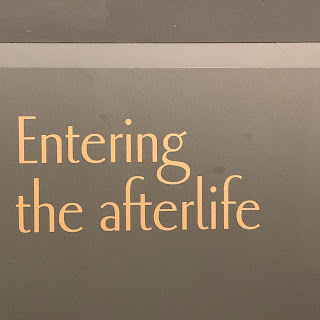On testing thoughts though I do not suffer
Dear Void,
Today’s blog post is brought to you by the word ‘submission’. In its doubleness. I have finished submitting to the text of TitC (having finally finished reading all 27 numbered sections, follow back through the posts to see what this is. Maybe start here) and have decided to submit to a conference who have put out a call for papers. So, I spent this afternoon thoroughly reading through their information. No more on that for now, I’ll tell you how I go. Bit nervous. But I do not suffer.
I do not suffer like those I’m watching in Ukraine, or those in Palestine, or Syria, Yemen (may we extend our wish for peace to all peoples).
* * * *
This morning in the city the weather is wet and threatens to turn torrential.
The electricity goes off in the HDR studio. I do not suffer.
So, I read some Lover’s Discourse: s'abîmer/ to be engulfed (1977:10-12) Some notes:
Barthes’ notion (of ending it all, which he calls insipid) matches the colour of a mild overcast morning. There is silence. There is also desolation because he suffers, he says, from some incident. He does not specify.
The notion of ending it for myself never occurs to me because: why not stay? The goodness of being here is enough.
Barthes moves on to another day, where it rains. Today, here, it rains. I’m waiting in the lounge of the HDR studio, waiting for the electricity to be turned back on. Out in the hallway, some technicians say, when I ask them about it, that they’re testing something or other blah blah, they said, I didn’t catch what they were testing. I do not suffer any suffering from some incident of the past or from a pre-emptive abandonment. I sit in the room in modest thoughtfulness. Powerful forces drive modern nations ‘along the roads of power and domination.’ They work themselves out and they will continue to do so. Let us take the job of keeping alive (Camus, 1946). Saw the Camus quote on twitter.
And so, on that other day in the rain Barthes writes that he feels the outburst of annihilation that had moved from happiness. Engulfed by extremes, misery or joy, leading to nothing. He dissolves. Well, something dissolves. He specifies that he is not cut into pieces, dismembered
Dissolution is a fall, a flow, a melt. Also, a rise.
Then I remember that Lady Mary Wortley Montagu, too, wrote of ‘ending it all’. In 1736 she penned an equivocal and philosophical poem simply known as ‘Addressed To—’ which was later given unauthorised publication by The London Magazine in 1749.
 |
| Figure 1 smoking | Free backgrounds and textures | Cr103.com by Unknown Author is licensed under CC BY |
You can test difficult thoughts by touching them in thought, moving across them. Sizing them up. Loosening them. We move into them. Try them on and play them out. The extremes Barthes tests out, plays out, are not solemn but gentle, he says.
In this space Barthes and Lady Mary turn together, turn over the thoughts together.
I think of drowning a handwritten manuscript and in my mind’s eye I see the text soluble, moving through liquid like fine smoke curling through air creating outlines and asemic writing forms, the smallest units of meaning dissipating into meaninglessness. The ink is suspended in its new function.
My feet are cold, it’s raining heavily. I do not suffer, Void.
Jx


Comments
Post a Comment